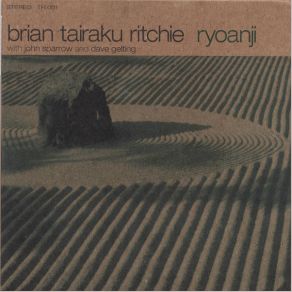Ryoanji
Download links and information about Ryoanji by Brian Ritchie. This album was released in 2006 and it belongs to Gospel, Jazz, Rock genres. It contains 10 tracks with total duration of 58:59 minutes.

|
|
|---|---|
| Artist: | Brian Ritchie |
| Release date: | 2006 |
| Genre: | Gospel, Jazz, Rock |
| Tracks: | 10 |
| Duration: | 58:59 |
| Buy it NOW at: | |
| Buy on iTunes $9.99 | |
Tracks
[Edit]| No. | Title | Length |
|---|---|---|
| 1. | Kiso Bushi | 3:35 |
| 2. | Sankara Sugagaki | 3:49 |
| 3. | Etenraku | 6:43 |
| 4. | Eko | 5:17 |
| 5. | Ryoanji | 14:17 |
| 6. | Soran Bushi | 3:53 |
| 7. | Komoriuta | 4:42 |
| 8. | Blues for Aida | 5:11 |
| 9. | Kojo No Tsuki | 6:15 |
| 10. | Tamuke | 5:17 |
Details
[Edit]An austere visual presentation helps set this side of Brian Ritchie's music apart from
the rip-roaring, crowd-pleasing bass solos with the Violent Femmes. He has adopted the name of Brian Tairaku Ritchie in connection with his studies of the shakuhachi and Japanese music and so should all serious students of the musical arts be allowed to adorn themselves. As the great Wadada Ishmael Leo Smith said, "just wait til I start moving up and down with the names, too."
As for the name Ryoanji, it has been used in the past as the title of recordings connected to a John Cage composition which comes as well out of a deep interest in the fascinating traditional music of Japan. The Cage number is given an interpretation as part of the program from a trio dubbed the Milwaukee branch of Ritchie's Shakuhachi Club group concept. A previous recording documented a version based in New York City.
Ritchie's music in this style is getting stronger and stronger, as it should. That the Milwaukee trio is going to cook is established immediately in the pulsating rhythm of the opening "Kisio Bushi." John Sparrow is the percussionist, in this case creating an instrumental sound in which metallic shimmer accents the diversity of the Cuban cajon and orchestral tympani. Bassist Dave Getting plays with a helpful ornamentation of focus in relation to both partners. Compositions such as "Etenraku" which move with such stealth, as slowly as muscles relaxing, are an expected part out a shakuhachi outing and are made even more delightful with the addition of weird avant-garde noise. A cover version of Steve Lacy's "Blues for Aida" is another highlight, followed by "Kojo No Tsuki" in which Ritchie's tone is remarkable.